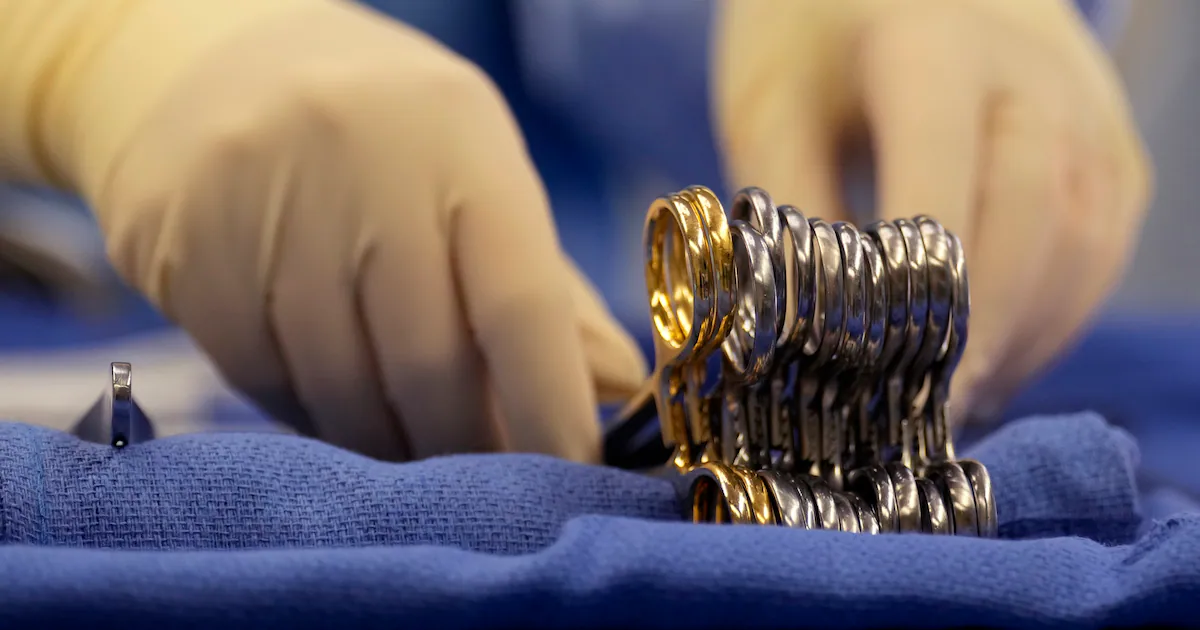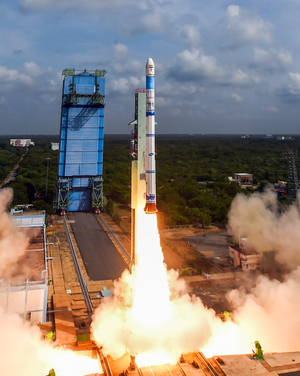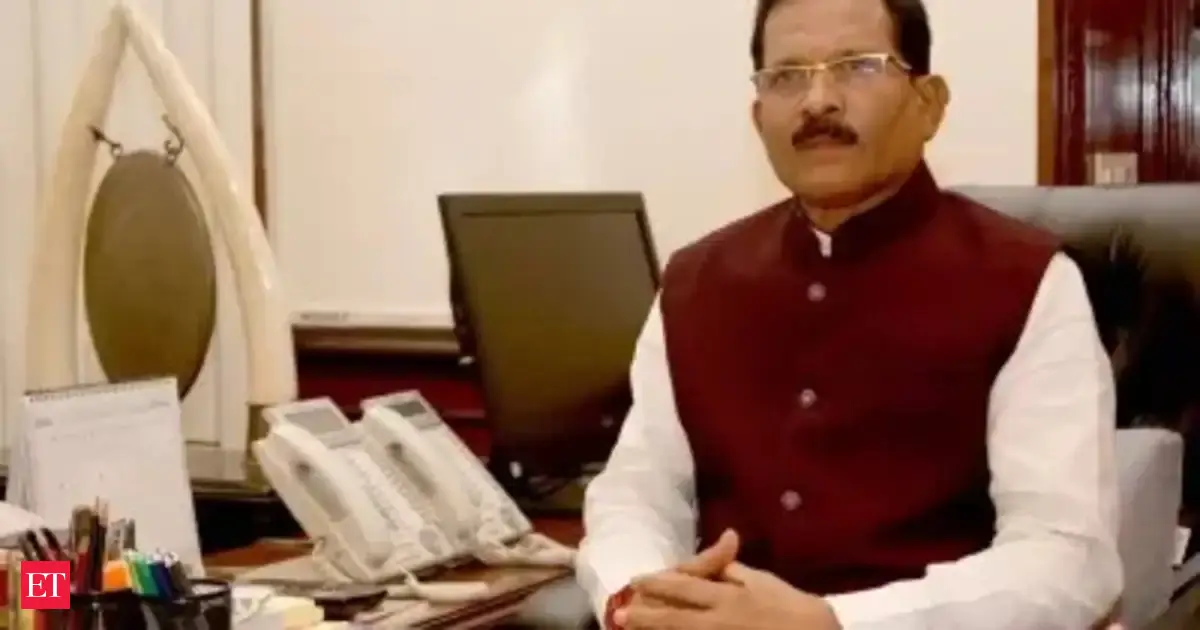
In early 2020, a director of the kidney transplant program at Parkland Health in Dallas noticed a problem. Patients were languishing on the waiting list for donated kidneys. One patient, he said, had waited nine years for a kidney transplant, and by that time he had become too sick for the procedure. Others died waiting.
“No one should have to wait that long,” he said in a recent interview.
He told hospital executives at the time that the delays arose because organs intended for patients at Parkland, which serves a disproportionate share of poor people, were being redirected to patients at nearby UT Southwestern Medical Center, a prestigious academic hospital caring for a more affluent population.
“I observed Parkland patients get passed over and the same organs go to patients at UT Southwestern,” said the program director, Patrek Chase. “This forced many of our patients to continue long-term dialysis while languishing on the transplant wait list.”
According to a presentation Chase made to hospital executives in early 2020 that The Washington Post reviewed, at least 36 times in the previous year, kidneys had become available to Parkland patients, but the transplants didn’t happen because doctors said there was a problem with the donated organ. Evaluating and rejecting donated organs is a normal part of the transplant process. But in those 36 cases, doctors subsequently transplanted the same organ into a patient at UT Southwestern Medical Center, he said.
The allegations are part of a wide-ranging whistleblower lawsuit brought by Chase, an industry veteran with 15 years experience at transplant centers and organ procurement groups, who said the way the United States collects and distributes lifesaving organs has been corrupted by greed, lax oversight and methods designed to maximize payments from Medicare.
Chase’s lawsuit takes aim at all three nodes of the organ transplant system: the nonprofit groups that solicit and procure organ donations; the government contractor that maintains the waiting list of hopeful recipients; and the transplant centers where the operations are done. In his telling, all three have been corrupted by financial incentives.
Representatives at Parkland and UT Southwestern hospitals declined to comment, citing the pending litigation. Scientists have long noted that people of lower socioeconomic status have more trouble getting transplants, but given the medical complexities, it can be difficult to infer bias from any particular set of statistics, according to doctors who have studied the phenomenon.
Chase’s insider account nevertheless adds to the controversy surrounding the national system, the complex infrastructure supporting a multibillion-dollar business in transplants. Under a 1972 law, Medicare insurance pays for nearly all of the kidney transplants performed in the United States, which numbered nearly 28,000 in 2024.
In 2022, a Senate Finance Committee report blamed 70 deaths on mistakes in the screening of organs and noted widespread deficiencies in the system. More recently, government investigators found that at least 28 times, an organ procurement group serving Kentucky and parts of West Virginia and Ohio may have initiated organ recovery before the patient was confirmed dead.
“The entire system must be fixed to ensure that every potential donor’s life is treated with the sanctity it deserves,” Health and Human Services Secretary Robert F. Kennedy Jr. said in July.
The Justice Department, which reviews whistleblower lawsuits alleging waste of government money, has spent two years investigating the allegations, according to Chase’s attorney, Sam Buffone.
“We have been heartened by the strong reform (of the organ transplant system) from the Trump administrations and the aggressive oversight by Congress,” Buffone said.
The government has yet to join Chase in the whistleblower case, however. Under federal laws intended to punish businesses for defrauding the government, the Justice Department could intervene and seek three times damages plus a penalty.
“We hope this administration will aggressively investigate and join our fight in the future,” Buffone said.
A DOJ spokesperson declined to comment.
Criticism of organ procurement groups, ‘vultures’
At the beginning of the transplant process are the groups that procure organs from donors, and Chase has taken aim at three of them that he has worked for or with. He alleges that the three – LiveOnNY, NJ Sharing Network and Southwest Transplant Alliance – were so focused on maximizing reimbursements that they collected hundreds of organs that were not viable for transplant because the guaranteed Medicare reimbursement for kidneys gives them a financial incentive to do so. About 33 percent of the kidneys those groups collect are discarded because they were not viable, according to the lawsuit. The average discard rate, according to some researchers, is about 22 percent.
Organ recovery teams from Southwest Transplant Alliance were so aggressive in their collection practices that they were called “vultures” by Parkland hospital staff, he alleges in the lawsuit. In one harrowing incident he describes, a Parkland patient was brought to an operating room for organ recovery by Southwest Transplant Alliance. He was “not actually deceased,” Chase alleges. The Parkland doctors intervened to stop the organ recovery, according to the lawsuit.
The Southwest Transplant Alliance did not respond to multiple requests for comment. In legal filings, its attorneys said that it is a mistake to think that the organization’s efforts to maximize potential organ collection was motivated by “fraudulent billing.”
“Whether an organ is viable depends upon multiple factors, and cannot be fully known prior to recovery,” they wrote. They characterized Chase’s allegations as “vague” and “incredible.”
Chase also accused another organ procurement group, NJ Sharing Network, of maximizing revenue by gathering pancreases and pretending that they would be used for “medical research.” Instead, he alleges, the group stored them in a medical freezer that has no connection to research.
NJ Sharing Network declined to comment on the lawsuit but issued a statement saying, “We stand firmly behind our mission to support families and save and enhance lives through organ and tissue donation.” In a legal filing, the organization’s attorneys characterized Chase’s allegations as rife with “logical leaps” and a “dearth of details.”
LiveOnNY did not respond to repeated emails and phone messages requesting comment. In a legal filing last week, its lawyers said Chase’s lawsuit “improperly lumps LiveOnNY into a group of defendants and levels vague accusations that amount to nothing more than his opinion disagreeing with its operational and spending decisions.”
Chase’s lawsuit also takes aim at the government contractor that is supposed to organize and monitor the U.S. organ transplant system and the waiting list for organs. Called the United Network for Organ Sharing (UNOS), it has come under criticism before.
In 2022, for example, the Senate Finance Committee reported that UNOS’s “lack of oversight” caused failures leading to the loss of lifesaving organs in transit and risked patient safety.
“UNOS has used its position to protect industry interests instead of patients,” said Greg Segal, co-founder of Organize, a group that seeks reform of the transplant industry. “Rather than perform oversight, in practice UNOS has engaged in cover-ups and whistleblower retaliation. UNOS needs to be removed as a contractor immediately.”
Chase similarly accuses United Network for Organ Sharing of failing to identify and punish wrongdoing.
For example, Chase said, he reported to UNOS that Parkland patients were being bypassed for organ transplants in February 2020. Doctors at UT Southwestern were overseeing transplants at both hospitals, he said. But when UNOS investigated, the UT Southwestern doctors explained that the organs they had rejected for Parkland patients had been deemed “unusable.” The doctors did not provide individualized explanations for how those organs could be then transplanted into UT Southwestern patients and the matter ended there, according to Chase’s lawsuit.
Chase also proposed to Parkland executives that the hospital hire its own transplant doctors. But, he alleges, they rejected the proposal and retaliated against him. He left Parkland about September 2020.
“UNOS failed to properly exercise its oversight capabilities and failed to identify the fraud,” Chase’s lawsuit says.
UNOS declined to comment, but in a legal filing earlier this month, it said it does not “concede the accuracy” any of Chase’s allegations.
Allegations at transplant centers
At Trinity Health’s Loyola University Medical Center in Illinois, a transplant center where Chase also worked, doctors were focused on boosting revenue, he said, sometimes risking patient lives. Doctors were reckless in choosing organ recipients, he alleges, and during one six-week stretch, Loyola had three deaths in its operating rooms.
“Loyola … continued these unsafe practices to maximize Medicare billings,” according to the lawsuit.
Some hospital officials viewed the transplant problems with alarm.
“We essentially don’t have a functioning quality program in the transplant realm and it’s a major vulnerability,” according to one Loyola internal report quoted in the lawsuit.
To hide these failures, Chase alleges, the hospital kept three sets of books. If a Loyola transplant patient died in the operating room, the internal records would call it a graft failure and transplant-related death. Loyola did not record such instances as “an official transplant death,” according to the lawsuit, allowing Loyola to hide problems in its transplant program.
In May 2022, Chase was asked to resign, according to the lawsuit, in retaliation for uncovering Loyola’s fraud.
A Loyola spokesperson declined to comment, but in legal filings, Loyola attorneys said there was “nothing nefarious” about maintaining multiple databases, “which categorized certain information differently.”
Hospitals “frequently keep partially overlapping information in different databases to serve different purposes,” they wrote.
As for the deaths at the hospital, the attorneys attributed them to Loyola taking on sicker patients.
“Most of his allegations reflect nothing more than the simple truth that such patients are more likely to suffer additional complications from treatment than healthier patients,” they wrote.
Dallas hospitals
Though located less than a half-mile from each other, the hospitals at the center of Chase’s lawsuit have strikingly different patient populations.
Parkland is a provider for the county’s indigent population. About 64 percent of Parkland hospital bills are covered by Medicaid or charity. UT Southwestern has a more affluent population. And according to Chase’s presentation to hospital executives, patients at UT Southwestern came off of the waiting list more than four times faster.
In the lawsuit, Chase alleges that UT Southwestern’s practices precipitated the deaths of at least three Parkland patients, whom he identifies by initials: RG, a 29-year-old man, RP, a 63-year-old man, and JC, a 50-year-old man. In one incident, doctors rejected an available kidney for five patients at Parkland, blaming the poor quality of the organ, according to the lawsuit. They then transplanted it into a UT Southwestern patient.
“There is no reason why the organ would be rejected because of organ quality and then accepted by the same doctors for different patients,” according to the lawsuit.
A number of academic studies have documented that people of lower socioeconomic status are less likely to have access to kidney transplants and more likely to depend on grueling dialysis treatments for longer periods of time.
Disparities, however, can arise between two hospitals for reasons that have nothing to do with bias, some doctors said. For example, patients at Parkland may have been sicker, and so less suitable for a transplant.
According to Chase’s statistics, that happened sometimes. For the period he documented, there were 24 instances when an organ had been designated for a Parkland patient, but then the patient was deemed too sick.
In another 36 instances, however, there was a different reason a Parkland patient didn’t receive a transplant, according to Chase’s presentation. In those instances, an organ was designated for a Parkland patient but the transplant didn’t happen because the organ wasn’t considered of good enough quality. Subsequently, it was transplanted into a patient at UT Southwestern.
“There are many reasons for differences between hospitals,” said Rachel Patzer, a research scientist who has studied organ transplant process and who is president of the Regenstrief Institute, a nonprofit research group. “Some of them may be biased against patients with lower socioeconomic status, but it is difficult to say whether this is intentional or unintentional bias.”
Without more information about all the cases at the two hospitals, however, she said it was impossible to identify a cause.
Chase tried to alert hospital officials to what he was seeing, according to an email chain viewed by The Post. In it, Chase noted that Parkland transplant patients were being overlooked, and he offered specific examples.
A Parkland medical officer responded with one word: “Infuriating.”
According to the lawsuit, the policies at UT Southwestern were driven by financial incentives such as fees and costly markups.
Chase said he is coming forward now in hopes of improving the system. “Patients are suffering,” he said in an interview. “And donors are trusting a system that’s broken.”
– – –



